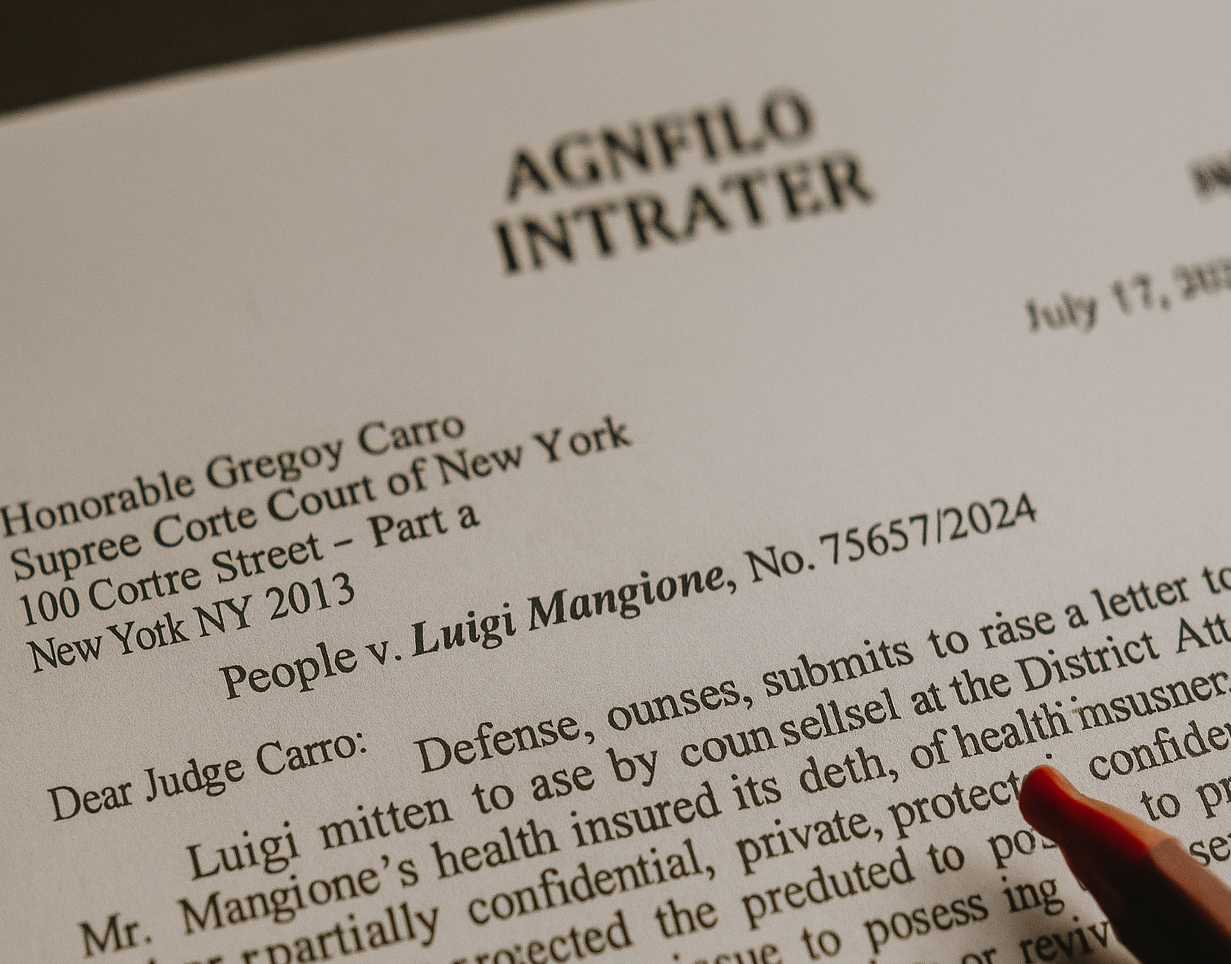
Parallel Violations, Parallel Survivors: How the Mangione and Dorn Cases Reveal a National Pattern of PHI Weaponization
Two very different people. Two very different legal arenas. One unmistakable pattern.
In July 2025, defense attorneys for Luigi Mangione filed a blistering court motion accusing Aetna—owned by UnitedHealth Group—of unlawfully disclosing their client’s protected health information (PHI) to prosecutors. The information included mental health and medication history, and was handed over without a valid subpoena, without Mangione’s consent, and without meeting the narrow legal exceptions outlined under HIPAA.
Meanwhile, a separate but equally devastating story was unfolding just miles away. In a forthcoming civil action, trans woman and Medicaid patient Samara Dorn is preparing to sue UnitedHealthcare of Colorado, Rocky Mountain Health Plans, and UnitedHealth Group for disclosing her PHI—including gender identity, surgical history, and metadata-laced call logs—to local law enforcement and, chillingly, to the Department of Homeland Security.
The disclosure occurred thirty-five days after final contact. No warrant. No subpoena. No clinical emergency. Just a bureaucratic escalation, fueled by metadata and convenience, masquerading as concern.
One Corporate Entity, Two Victims
While the legal details differ, both cases trace back to the same empire: UnitedHealth Group. In Mangione’s case, Aetna’s unlawful disclosure placed him at heightened risk in a capital murder prosecution. The leaked information was used to paint him as unstable and dangerous—shaping a death penalty narrative rooted not in evidence, but in psychiatric speculation.
In Dorn’s case, the disclosure to law enforcement created a parallel narrative: not of criminal guilt, but of institutional threat. She was flagged not because she committed a crime, but because her voice, identity, and digital footprint were deemed inconvenient. Through the use of backend tagging, AI-generated profiling, and misclassification, UnitedHealthcare constructed a narrative of risk that never existed—then passed that narrative on to police and federal agencies.
This Was Not Care. It Was Control.
Both cases demonstrate a catastrophic breach of trust and legality—not because the PHI disclosures failed to help, but because they were never meant to help. In each instance, patient records were disclosed for the convenience and liability protection of the insurer, not for the safety of the individual or the public.
In Mangione’s case, the mental health data was handed over after investigators began seeking the death penalty—raising serious questions about motive, legality, and institutional betrayal.
In Dorn’s case, the PHI disclosure occurred more than a month after any clinical interaction, in violation of HIPAA’s “imminent threat” standard under 45 C.F.R. § 164.512(j). Her data was used not to intervene in an emergency, but to justify reputational abandonment and surveillance escalation.
Administrative Erasure in Action
Dorn’s civil complaint outlines how metadata—call tags, risk flags, internal notes—was used to construct a false paper trail. This digital narrative was then used to reclassify her from “patient” to “public threat,” providing justification for disclosure to law enforcement and DHS. This process, which she calls administrative erasure, mirrors the logic in Mangione’s case: that PHI can be converted into reputational ammunition by the same system that claims to protect it.
What links these two cases is not merely the entity that caused the harm. It’s the infrastructure—the policies, the tools, the logic—that converts care into containment, healing into harm, and records into weapons.
One Shared Fight
These cases are not isolated. They are flashpoints in a growing national pattern: vulnerable individuals being profiled, criminalized, or erased under the guise of healthcare compliance.
Aetna gave PHI to prosecutors.
UnitedHealthcare gave PHI to police.
Both actions occurred without proper legal justification.
Both targeted those already marginalized.
Both used medical information to destroy, not protect.
Luigi Mangione is currently fighting for his life in a criminal courtroom. Samara Dorn is preparing to fight for hers in a civil one. Their stories are different—but the machine harming them is the same.
Read the Motion
We encourage the public, the press, and policymakers to read the Mangione defense team's powerful motion for themselves. It is available here:
📄 Download the Motion – 2025.07.17 HIPAA Violation – Mangione Defense (Google Drive)
This document is more than a legal filing. It is a warning.
Closing Statement
The idea that PHI can be quietly weaponized behind closed doors should terrify everyone. What happened to Luigi Mangione could happen to any criminal defendant. What happened to Samara Dorn could happen to any trans patient, any disabled person, or any Medicaid recipient who speaks too loudly.
We are no longer talking about privacy. We are talking about targeting.
We are no longer talking about compliance. We are talking about complicity.
We are no longer talking about care. We are talking about power.
And together, these cases demand accountability.